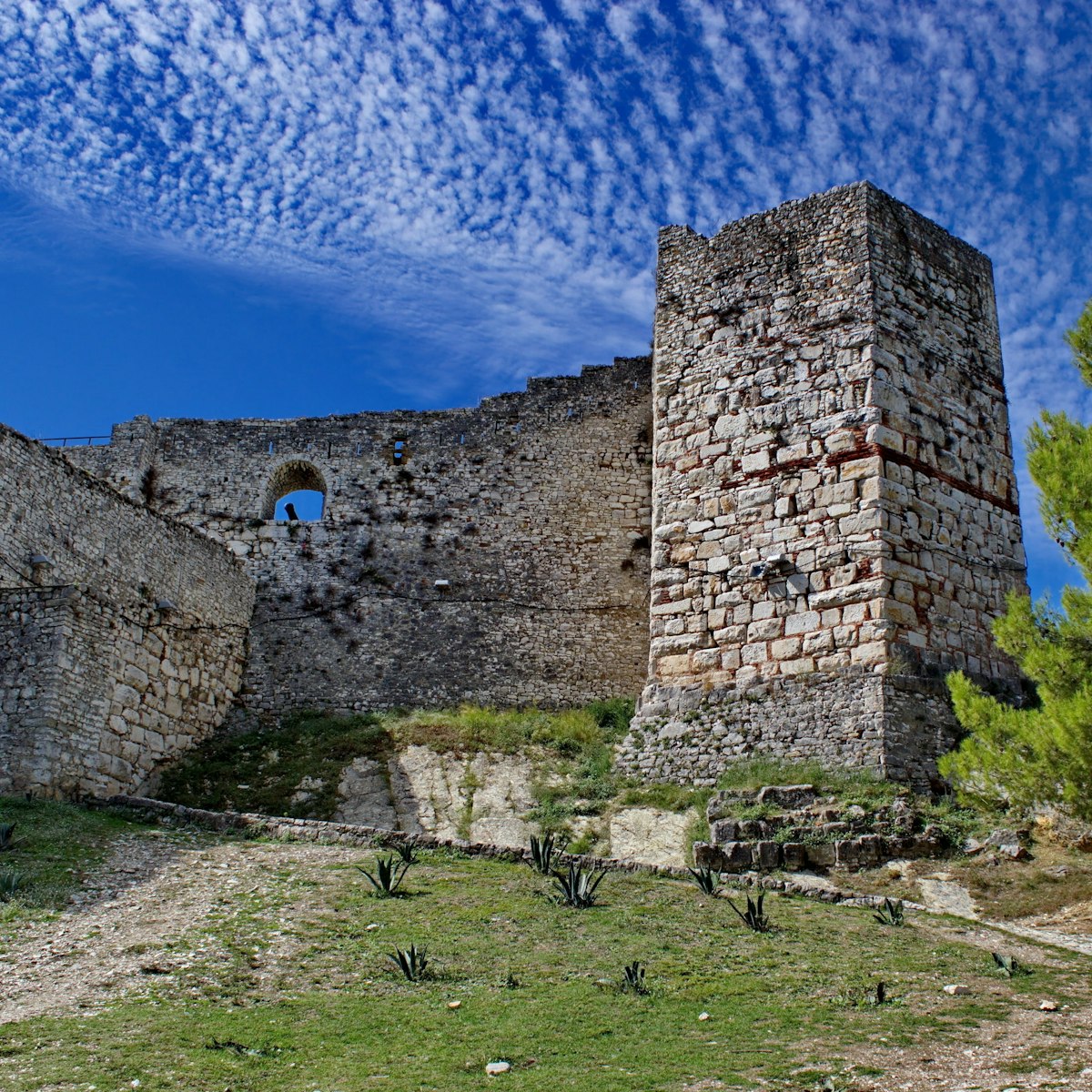The evocative ruins of the ancient Illyiran city of Apollonia sit on a windswept hilltop some 12km west of the city of Fier. While a large part of the ruins remains buried under the ground, what has been excavated within the 4km of city walls is pure poetry. The highlights include the theatre and the elegant pillars of the restored facade of the city's 2nd-century-AD administrative centre.
Few foreigners visit, but Apollonia is popular with locals for afternoon picnics.
Set on rolling hills among olive groves, with impressive views all around, Apollonia (named after the god Apollo) was founded by Greeks from Corinth and Corfu in 588 BC and quickly grew into an important city-state, which minted its own currency and benefited from a robust slave trade. Under the Romans (from 229 BC), the city became a great cultural centre with a famous school of philosophy.
Julius Caesar rewarded Apollonia with the title 'free city' for supporting him against Gnaeus Pompeius Magnus (Pompey the Great) during the civil war in the 1st century BC, and sent his nephew Octavius, the future Emperor Augustus, to complete his studies here. After a series of military and natural disasters (including an earthquake in the 3rd century AD that turned the river into a malarial swamp), the population moved southward into present-day Vlora, and by the 5th century AD only a small village with its own bishop remained at Apollonia.
While definitely one of Albania's most important ancient sites, the ruins have fairly minimal descriptions and can be quite hard to piece together, though the on-site Apollonia Museum complex is excellent and does much to make up for the lack of context in the archaeological site itself. Inside the museum complex is the Byzantine monastery and Church of St Mary, which has gargoyles on the outside pillars and, inside, some faded wall frescoes and impressive Roman floor mosaics.
Few people bother to see much of the site beyond the museum, theatre and administrative centre, but archaeological buffs or those with a sense of romance for such places will enjoy poking around the rest of the site and trying to piece together the outline of the city from the few remaining walls. You may be able to see the 3rd-century-BC House of Mosaics as well, though they're often covered up with sand for protection from the elements.
Apollonia is best visited on a day trip from Tirana or Berat, or as a stop off as you travel down the main road to Albania's south – you have to go through Fier to reach the coastal road anyway. To get to Fier, furgons (shared minibuses) head from the Rr Myhedin Llegami stop in Tirana (300 lekë, 2½ hours) throughout the day. You can also catch a furgon from Berat (300 lekë, one hour). Once in Fier, furgons depart for the site (50 lekë) from Fier's '24th August Bar' (ask locals for directions). If you'd prefer not to wait for the furgon, a taxi will charge approximately 500 lekë one way from Fier.



